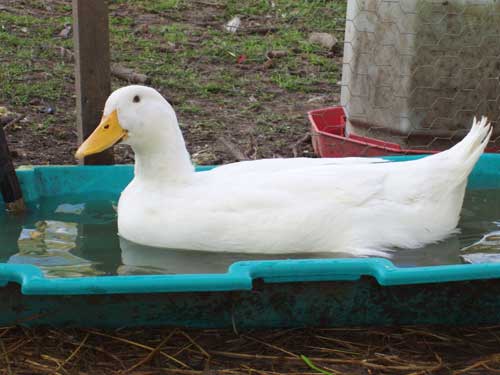I attended Lawrence, Kan., city commission meeting on Dec. 2, 2008, to hear the discussion of keeping live fowl in the city. Prior to public comments, Assistant City Manager Cynthia M. Boecker summarized current laws and how other cities in Kansas handle the issue.

|
| TROY GRIEPENTROG |
I was glad to hear the discussion firsthand. Earlier reports gave the impression that the Humane Society was against the idea because of potential health hazards to humans.
Midge Grinstead, executive director of the Lawrence Humane Society, clarified that the Humane Society "has no opinion about keeping fowl" in city limits and is neither for nor against it. But she raised some questions for the commission to consider:
- How many fowl will be allowed?
- How large must the property be?
- What kind of fowl will be allowed? (Peacocks, guineas and roosters are all very loud.)
- Will there be regulations for coops, cleanliness and parasite control?
- Will fines be imposed if fowl leave their owner's property?
- If a dog or cat kills fowl, will the dog or cat be considered "dangerous"?
- Will there be a regulation against butchering fowl for meat?
Those are valid questions, and clarification would certainly prevent misunderstandings in the future.
Several private citizens spoke — all of them in favor of keeping chickens.
One person spoke about the freedom to produce his own food saying, "I want to use my land to build a henhouse, not a whorehouse." Another man, who already keeps a few hens, said that he was in favor of some clarifying regulations.
A WorldWatch Institute article and information from the Pew Commission on Industrial Farm Animal Production were referenced by someone who pointed out that industrial poultry is more likely to develop avian influenza than are backyard flocks.
A representative of the Coalition of Lawrence Urban Chicken Keepers (CLUCK) said she saw no issues with developing regulations to avoid problems, and that CLUCK would be happy to work out the details of regulations with the commission. A local veterinarian (who stated she didn't realize the issue was on the agenda and hadn't planned to speak) said that she regularly sees chickens and ducks in her practice and that owners are "a pretty responsible group." She also pointed out that chickens are "green" animals, in that they're very useful in gardens.
Finally, a woman spoke about an experiment implemented by a friend, her and their 3-year-olds. The goal was to see how much of their own food they could raise (including eggs from chickens) and to educate the children about where their food comes from. She said it would "be a shame if [keeping chickens] were forbidden."
As the commissioners discussed the issue, no one seemed to be opposed to allowing live fowl in the city. Mayor Dever said he would like to ban roosters, and that the Kansas Department of Health and Environment and the Centers for Disease Control and Prevention have concerns with pathogens.
The final decision was that city staff would develop regulations to be voted on at a future meeting. If you're fighting to make keeping chickens legal in your community, it may be a long process, but stick with it! Many other cities have laws allowing chickens.
If you're thinking of keeping a few hens for eggs, How to Raise Chickens in Your Back Yard is a good place to start.